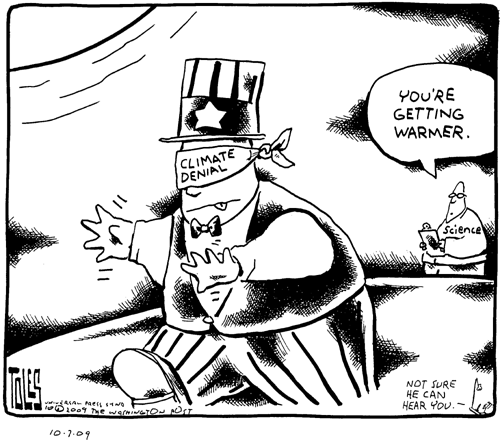In this first week of denial101x I learned about this FLICC Acronym as it applies to the reasoning processes behind climate denial. FLICC and its meaning:
- f- false experts
- l- illogical fallacies
- i-impossible expectations
- c-cherry picking
- c-conspiracy theories
I don't think its uncommon to engage with deniers and feel surrounded by them. For example, the story of the Tuareg on Al Jazeera called Orphans of the Sahara reinforced what I already knew about the highland region desertification in Morocco's Atlas Mountains. I'd been there in 2012 to confirm on my own what has been happening to the world's deserts. This reinforces what Alan Savory told me: that most of the world's deserts are man-made and ever expanding. However when I shared this first hand knowledge and experience with a European coworker in China his reaction was to discount all of my firsthand evidence and reacted to the documentary as, "they've tinted the film to make it look drier than it is." Would that be a conspiracy theory? It's clear that first hand evidence means nothing to most people if they've already made up their minds and anything you try to present such as clear evidence and expertise only irritates them. Most people couldn't care less. Isn't that the cause of the predicament?
Even a PhD in history would discount what research I have been reading with "the animals and plants will be able to adapt to increased heating." Well no, they can't the research shows that the majority of species cannot and will not as even wild bees are collocated to specific habitats not relocating rather going extinct. Also, the rapid decline in amphibians alone in mountainous previously cool regions are an indicator that adaptation is no real opportunity for them. In addition coffee and tea plantations I have personally visited in India and Sri Lanka in 2001 have since seen enormous declines in production - these have no higher elevations they can reach to escape climate impacts and their crops are increasingly ruined and their labourers starving. Would that be an example of an impossible expectation? That these humans, plants and animals will miraculously escape already insufferable heat by climbing into the ether? It appears to be wishful thinking. It appears the ramifications of climate change are too much for most people. These who roll in FLICC would rather shape the world to their own bowl-headed thinking rather than gather new evidence to reach reasonable and scientifically conceded conclusions.






